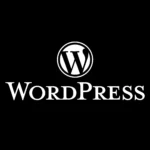Does your WordPress website take an eternity to load?
When it comes to your brand’s website, the loading speed is an important factor considered by decision-makers and it definitely impacts how successful you will be online. A slow WordPress website can cost you visitors and leads, and it’s important to address any performance issues quickly.
In this article, we’ll look at some of the common causes of a WordPress website slowdown, as well as what steps you can take to fix them. This guide won’t cover all possible solutions; rather, it will focus on some of the most common problems users experience with their sites running slowly.
If you’re having performance issues with your WordPress website, this article will provide you with direction and offer tips for overcoming these issues. Website performance is critical to your organization’s success.

Website Speed is Really Important
Website performance optimization is critical for the success of any website. It affects how quickly a user can access your site, including important bots, and your future clients. I cannot reiterate this enough.
Large, in-the-know, analytics-driven marketing teams know this important fact: website speed is #1. It was once maybe how pretty is the site… aesthetics. Or, even, how well the website converts… but today, the biggest lever for controlling conversion rates, brand approval, and pretty much all KPI’s your organization may be following… SPEED! Time to load, Time to first contentful paint, time to interactive, these are the KPIs you should be thinking about.
Website performance directly impacts the user experience. Slow-loading pages, unresponsive design elements, and sluggish browsing frustrate your site’s visitors. In turn, slow websites see a high bounce rate and decreased user engagement KPIs. By prioritizing website performance, leaders ensure a seamless and enjoyable experience for users, enhancing their satisfaction and increasing the likelihood of repeat visits, conversions, and customer loyalty.
Prioritizing website performance helps establish a positive brand image, fosters trust among visitors, and enhances the overall reputation of the organization. Leading WordPress developers know that, as a whole, the CMS can be challenging to tune correctly, and a poorly tuned WordPress website always slow.
It goes beyond just future clients, though. Search engines, like Google and Bing, consider website performance as a key indicator when prioritizing which resources are more important. It’s pretty simple, since users will like faster loading sites, as they’re inherently easier.
Website performance has a direct correlation with conversion rates, too. Research continues to show that even a one-second delay in page load time can result in a significant drop in conversion rates–this applies to all types of websites, too. Faster websites create a seamless experience for users.
Prioritizing performance improves the likelihood of converting visitors into customers, resulting in higher sales and revenue.
A poorly performing website can damage an organization’s brand reputation and erode trust. Users associate a slow or malfunctioning website with unprofessionalism, incompetence, or outdated practices. On the other hand, a fast website helps convey a sense of professionalism, reliability, and attention to detail, that is definitely translated into your user’s experience.
By investing in website performance, organizations can gain a competitive edge, improve customer satisfaction across the board, increase conversions on-site, and ultimately: drive mission successes.
Biggest Culprits for a Slow WordPress Website
There are several common causes of slow WordPress websites, and how you fix them depends on which issue is causing the problem.
The most common culprits for a slow website include:
- Problems with your host
- Slow plugins or themes
- Unoptimized images
- Limited server-side optimizations
- Outdated software
- Too many requests from external sources (e.g., social media, fonts, icons, etc.)
- Failure to use a CDN or a cache
How to Fix a Slow WordPress Website
If your website is hosted on a poorly performing server, it’s likely to be slow even if everything else is optimized. It’s a good idea to investigate your hosting and consider switching providers if necessary.
Hosting has changed a lot in the past several years. For many marketing teams, hosting has transitioned from a long-term lease arranged private server or bare metal server to a constantly changing VPS or host-of-the-day, moving complex sites around frequently has become easy.
Before making big decisions about moving, take a few steps to see if the issues could be mitigated through more economical means.
Addressing Slow plugins and themes
One of the primary causes of a slow website is outdated software.
Outdated WordPress core, plugins, or themes can cause problems such as compatibility issues with other theme or plugin components which can lead to conflicts and make your site slower. Keeping everything up to date will help ensure optimal performance for your site.
Check for plugins that are known to slow down WordPress and make sure, if your organization is using them, you need their functionality.
Don’t forget your theme! Is your organization using a custom WordPress theme? Or, are you using a popular WordPress theme from a third party? Either way, it’s important to make sure you keep your theme up-to-date.
This is also a good time to take a quick plugin audit, and take a look at which tools you may or may not be using. Disabling plugins can definitely boost website performance.
Some plugins we see performance issues with often:
- Revolution Slider
- JetPack
- Contact Form 7
- WPML
- Yoast SEO
- WPForms
In 2023, many older WordPress themes have been neglected.
Addressing hosting issues
Your web hosting will also have an impact on your website speed. If you are using a shared hosting provider then this means that your resources and power is split between multiple websites, thus making it much slower to load pages. consider upgrading or switching hosting providers to ensure the best performance possible for your website.
For small websites, or websites infrequently visited, a simple shared host may be okay. For global organizations, the requirements are much different. If this is the case, you should consider switching to cloud hosting or upgrading your current hosting package with more resources and better performance specifications.
WordPress hosts we know to sometimes see performance issues on shared or VPS plans:
- DreamHost
- SiteGround
- GoDaddy
- Bluehost
- InMotion Hosting
- HostGator
- WP Engine
- 1&1 IONOS
- A2 Hosting
Address database issues
The best way to address potential database issues is by using WordPress plugins that help manage and optimize the database. These types of plugins will audit all your tables, detect any redundant information, and help you make decisions about which information should be deleted or kept.
Cleaning up the database helps reduce the load time on pages, which in turn increases speed performance.
Another thing to look at, while thinking about database optimizations, is to look at any plugins that are making excessive queries on your database. You can identify these by finding the slowest loading plugins with the help of Query Monitor and reducing the number of queries.
Our WordPress performance engineers find that optimizing the database can have a great impact on performance, and that this is a good place to start when trying to diagnose speed issues with your WordPress website.
Start using a CDN
A Content Delivery Network, or CDN, is an external service that stores images, JavaScript files, CSS files and other static assets on its servers so they can be delivered faster for visitors around the world.
This reduces load times as files are served from a server close to the user’s location rather than directly from your own web server. A CDN will also reduce stress on your own server resources, allowing you to focus those resources on more intensive requests such as running queries or returning dynamic content.
CDN’s are really important if your website caters to a widely distributed global audience.
Implementing caching mechanism
As we’ve discussed previously, caching helps reduce page load time by storing web pages in memory for faster access when a visitor revisits the site. There are a number of popular plugins to enable caching on WordPress, including WP Rocket and W3 Total Cache, among many others. Enabling caching can have significant positive impacts on page speed performance, so it’s certainly worth considering if you haven’t done so already.
With many options, our engineers recommend most websites implement an object cache, like Redis cache, Memcache, or similar. These are typically the big impact items, especially for those with limited server resources and high traffic volume.
There are engineers who specifically focus their entire careers on caching mechanisms, and thankfully, several of them are a part of our engineering team.
Next Steps for Your Slow WordPress Website
If you’ve already taken a number of steps to optimize your website, perhaps its time to bring in a professional. Our team are experts in WordPress performance optimization and in a matter of hours, they can diagnose any issues, and provide a deeply customized solution for your website’s performance.
With some simple tweaks we can ensure that your WordPress website is running fast and smooth, allowing you to focus on your mission. Tuning your server and WordPress website is what these engineers do best.

